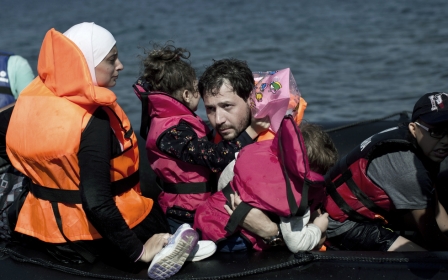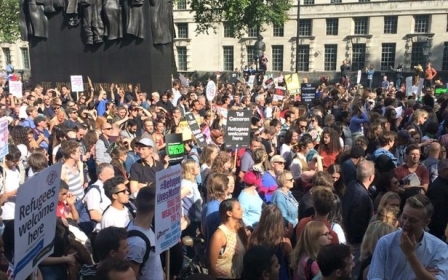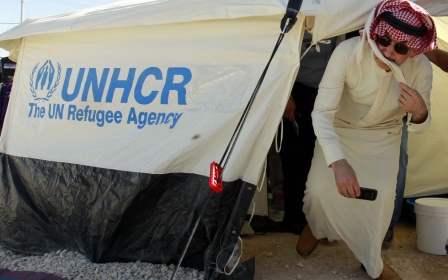UK appoints minister for Syrian refugees as Cameron visits Lebanon

Britain on Monday announced it had appointed a minister to deal specifically with the 20,000 Syrian refugees that the country has agreed to resettle from camps bordering the war-torn country.
"The queen has been pleased to approve the appointment of Richard Harrington MP as a Parliamentary Under Secretary of State jointly at the Home Office, the Department for Communities and Local Government, and the Department for International Development," said a statement from the Downing Street office of David Cameron.
An under secretary is the lowest rank of the three tiers of Britain's government.
The prime minister was on Monday visiting a refugee camp in Lebanon "to see for myself and to hear for myself stories of refugees and what they need.
"Britain is already the second largest donor to refugee camps to this whole crisis, really helping in a way that many other countries aren't with serious amounts of money," he said.
"We will go on doing that including increasing the amount of money we are giving to educate Syrian children here in Lebanon and elsewhere. I think that's absolutely vital."
Cameron announced earlier this month that Britain would take in 20,000 more Syrian refugees, amid growing pressure at home and abroad to address the crisis.
Cameron was to visit a refugee camp in the Bekaa valley in eastern Lebanon, the source said. The country hosts more than 1.1 million Syrian refugees.
He was also due to hold talks on the refugee crisis with his Lebanese counterpart Tammam Salam.
Britain has accepted 216 Syrian refugees over the past year and granted asylum to almost 5,000 Syrians since the conflict broke out in 2011 - far fewer than other European countries like France, Germany and Sweden.
More than four million Syrians have fled abroad.
Muslim states urge UN force to help stem Syria tide
The United Nations should consider a peacekeeping force for war-ravaged Syria to help curb the surge of refugees which is destabilising the region and beyond, the Organisation of Islamic Cooperation said on Sunday.
An emergency meeting of the 57-member group called on the UN Security Council to urgently consider creating "a multi-dimensional UN peacekeeping operation in Syria as a prelude to restoring security and stability in the country".
It also called for more to be done to find a rapid political solution to the Syrian conflict.
The OIC, which calls itself the collective voice of the Muslim world, blamed the humanitarian crisis on "the war crimes committed by the regime in Syria".
The migration from Syria has created a crisis in Europe, where Germany alone is expected to receive 800,000 asylum-seekers from Syria and elsewhere this year.
"The meeting stressed the common responsibility of all nations, particularly OIC member states, to open their doors to the Syrian refugees as a mark of Islamic compassion and solidarity," a closing statement from the meeting said.
The OIC noted that more than half of its member states are not signatories to the UN Convention on Refugees, and urged them to sign.
The OIC further "urged all countries to refrain from extending military support to the Assad regime".
That call comes as Washington accuses Moscow of a military build-up in Syria, where Russia has backed Assad against the uprising of more than four years.
The OIC said Syria's neighbours who have taken refugees have borne "a huge portion" of the humanitarian burden and the international community should give them more support.
New MEE newsletter: Jerusalem Dispatch
Sign up to get the latest insights and analysis on Israel-Palestine, alongside Turkey Unpacked and other MEE newsletters
Middle East Eye delivers independent and unrivalled coverage and analysis of the Middle East, North Africa and beyond. To learn more about republishing this content and the associated fees, please fill out this form. More about MEE can be found here.




